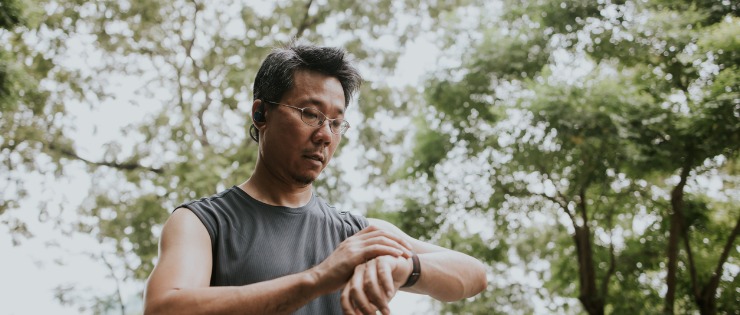
Injuries and goals don’t seem to go hand in hand, but you’ll be surprised what a difference goal setting can make to your recovery. After a major injury, the recovery time can be long and arduous. It’s common to think that you’ll never recover and get back to your old lifestyle. However, with a few SMART goals, you should start to feel like your recovery is achievable. Once you’ve achieved the SMART goals you set for yourself, you’ll be well on the road to getting back into shape after your injury.
The Importance of Goals During Recovery
Goal setting is the process of making a plan of action that guides us to choose the right moves at the right time. Setting goals is linked to higher motivation, self-esteem and confidence. There is plenty of research to show a strong connection between goal setting and success. Goal setting can influence the mind and help us make smart decisions.
If you’ve sustained an injury, setting a meaningful goal can maximise your engagement and motivation in rehabilitation to achieve your recovery goals. It can help keep your focus through a long rehabilitation process. Goals can be short, medium or long-term.
What is a SMART Goal?
SMART goals can be applied to just about anything in life including rehabilitation from an injury. SMART is the acronym for:
Specific
Measurable
Achievable
Relevant
Time-Based

A SMART goal includes all of these criteria to focus your efforts and increase the chances of achieving a goal.
Specific
Make your goal well defined and clear so you can read it weeks or months later and know exactly what the goal is that you want to achieve.
Measurable
Making it clear with outcomes that can be measured. Track your progress with smaller goals along the way. Physiotherapy goals are often based on an activity such as walking without the aid of crutches.
Achievable
Don’t set yourself up for failure. Set goals and milestones that you can achieve otherwise you’re at risk of becoming demotivated and giving up. If you’re not sure whether or not your goals are achievable, ask your doctor or physio if your body is capable of the rehab journey you’re setting yourself.
Relevant
A milestone goal needs to relate to your long-term final goal. If you are unsure of the steps involved in your rehab, ask your doctor or physio to explain them so you can set goals that are relevant to the recovery of your specific injury.
Time-Based
A goal needs a clear start and finish date. If there are no time boundaries, there is no sense of urgency to achieve the goal. Without an end date, you also can’t set milestones for achieving goals along the way.

Help From Your Health Practitioner
If you’re not sure what kind of goals are realistic or timely, speak to your GP or physio. Explain that you want to rehabilitate quickly by working towards short and long-term goals every day.
Short, Medium and Long Term Goals
If you’re seeing your doctor or physio soon after the injury occurs, you can start with basic, short-term goals. In the early days, you may be concentrating on reducing the swelling and improving mobility in order to get back to doing basic daily living tasks so you aren’t relying on another household member to do everything for you.
Your health practitioner can assist with helping you write and reach your medium-term goals Your goal may be to return to work or sporting commitments. The physio may recommend home exercises you can do to stretch the muscles and rebuild strength in the injured area. You could make it your goal to complete the home exercise each day and slowly increase the intensity of your workouts over time as you become stronger and more confident in your progress.
The final goal may be to get back to your full sporting commitment or to completely return to normal duties. If you’re unsure how to achieve the goal, ask your doctor or physio what actions you need to take then work them into your daily routine to ensure you find the time.

Celebrate Your Achievements Along the Way
Injuries can affect your mental health, so after achieving each milestone or goal, pat yourself on the back. Celebrating the small but significant steps will help you build momentum to achieve your final goal. A lack of motivation usually creeps in when we think the end goal is a long way off. Acknowledging the small wins makes you feel one step closer.
Think about how you will celebrate each goal. It doesn’t need to be anything extravagant for your brain to recognise the reward and create motivation for the next step. For some, sticking a gold star against the goal is reward enough to keep the momentum going.
What to Do if You Fail
If you don’t meet a milestone or goal, don’t give up. You can’t always control how your body will recover, so if you’ve had a setback or it has taken longer than you would like, treat it as feedback. Maybe you need to try a different exercise regime or you didn’t put in the work that was needed. Understand why you failed so you can bounce back more confidently.
Remember That Recovery is Rarely Linear
What many people don’t realise is that recovering from a serious injury isn’t a steady progress. There are days where you feel great and can do so much more than yesterday, then there are other days when the pain is worse and your mobility is reduced. This is a normal part of recovery, as the progression isn’t linear.
Some people will experience significant setbacks. Their medication may not work or they have to stop taking it. An injury in one part of the body can cause a new injury elsewhere as the body tries to compensate for it. Others may work too hard at their recovery and overdo it so they need to rest for days after. All of these setbacks are disappointing both physically and mentally.
When injury rehabilitation isn’t as positive as was hoped, it’s common for depression to set in. A person’s reduced mobility can make socialising more difficult, so they become lonely. If they aren’t working, they can be bored and may lose a sense of their own self-worth.
When recovery stalls, mental health can take a hit, which is where goals can help. A person can look at their long-term goal and know that their injury will eventually improve. They may need to re-assess their short or medium-term goals in line with their setback, but it allows them to be proactive and feel as though they have some control.
A person who is focused and goal-oriented is likely to be more positive towards their rehabilitation and perceive setbacks as temporary and able to be overcome. By looking towards the end-goal, you’re less likely to give up on rehabilitation when the going gets tough.

Kieser Australia Treatment Programs
HIF has a partnership with Kieser Australia to offer members access to programs that assist with chronic hip, knee and spinal conditions. The programs are designed to avoid or delay joint replacement and spinal surgeries by reducing pain and increasing function. The physio-led exercise-based programs and interventions are targeted and evidence-based. Kieser specialises in musculoskeletal conditions and chronic disease management through exercise. For information about eligibility, see the HIF Kieser page or contact us on 1300 134 060.